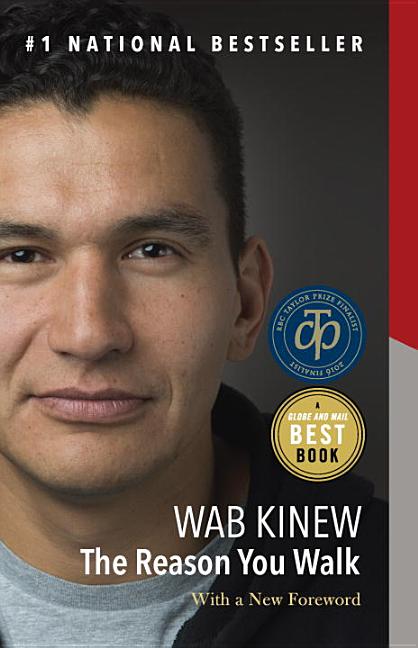The Reason You Walk: A Memoir
by Wab Kinew
15 Total Resources Book Resume View Text Complexity Discover Like Books
- Grade
- 7-12
- Genre
- Biography
- Nonfiction
- Cultural Experience
- American Indian
Year Published 2015
- Text Complexity
- Lexile Level: Currently Not Available
- ATOS Reading Level: Currently Not Available
- OverDrive Digital Book Details Explore on Marketplace
- Curricular Area
- English Language Arts
- Social Studies
- Lists With This Book
- Residential Schools
Our Original Resources 6
Audio Name Pronunciation with Wab Kinew
Created by TeachingBooks
Cultural Representation Reflection
Created by TeachingBooks
Story Map Multi-Leveled Lesson
Created by TeachingBooks
Nonfiction Read and Respond Multi-Leveled Lesson
Created by TeachingBooks
Vocabulary Graphic Organizers
Created by TeachingBooks
Submit Qualitative Text Complexity Rubric
Created by TeachingBooks
Book Guides, Activities & Lessons 3
Cultural Representation Reflection
Created by TeachingBooks
Story Map Multi-Leveled Lesson
Created by TeachingBooks
Nonfiction Read and Respond Multi-Leveled Lesson
Created by TeachingBooks
Book Readings 1

Audiobook Excerpt narrated by Wab Kinew
Created by Penguin Canada
Vocabulary Resources 1
Vocabulary Graphic Organizers
Created by TeachingBooks
If you find a 3rd party resource that isn't accessible to you, please email the name and link of the resource, as well as any details about your needs, to accounts@TeachingBooks.net.
Images courtesy of publishers, organizations, and sometimes their X (formerly Twitter) handles.



